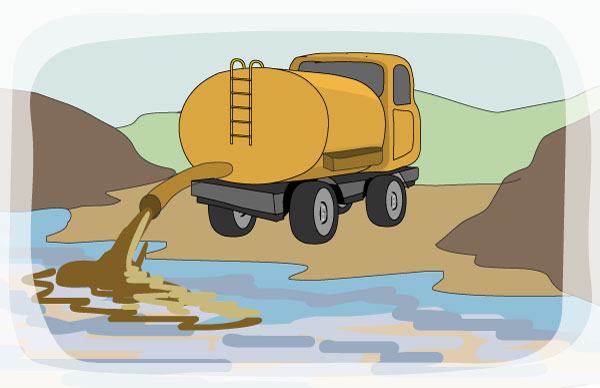- Wastewater
What is wastewater?
Wastewater refers to all effluent from a household, commercial establishments and institutions, hospitals, industries, and so on. It also includes stormwater and urban runoff, agricultural, horticultural, and aquaculture effluent.
- Effluent refers to the sewage or liquid waste that is discharged into water bodies either from direct sources or from treatment plants.
- Influent refers to water, wastewater, or other liquid flowing into a reservoir, basin, or treatment plant.
Sewage is also wastewater. It is wastewater originating from toilets and bathroom fixtures, bathing, laundry, kitchen sinks, cleaners, and similar dirty water that is produced in households and public places. Water used to irrigate turf and gardens, swimming pools, roof drainage, surface runoff, and stormwater are all wastewater but not classified as sewage.
 In simple terms, wastewater is all the dirty water from municipal sources (poop, urine, and fecal sludge). It includes black water, gray water, and yellow water. All dirty water from all the schools, restaurants, commercial establishments, hospitals, farms, floodwater, and all the possible dirty water you can think of is considered wastewater. Some wastewater contains hazardous dissolved toxins and chemicals, while others contain particles, sediments, and suspended matter of all sizes.
In simple terms, wastewater is all the dirty water from municipal sources (poop, urine, and fecal sludge). It includes black water, gray water, and yellow water. All dirty water from all the schools, restaurants, commercial establishments, hospitals, farms, floodwater, and all the possible dirty water you can think of is considered wastewater. Some wastewater contains hazardous dissolved toxins and chemicals, while others contain particles, sediments, and suspended matter of all sizes.
Agriculture (irrigation, livestock watering, and cleaning, aquaculture) uses about 69% to 90% of global freshwater use, and the bulk of it is returned to the soil, waterways, or discharged with added nutrients and contaminants.
